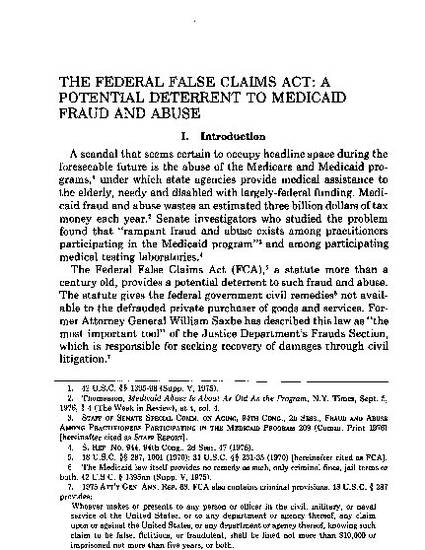
- Federal False Claims Act,
- Medicare,
- Medicaid,
- fraud,
- federal waste
A scandal that seems certain to occupy headline space during the foreseeable future is the abuse of the Medicare and Medicaid programs, under which state agencies provide medical assistance to the elderly, needy and disabled with largely-federal funding. Medicaid fraud and abuse wastes an estimated three billion dollars of tax money each year. Senate investigators who studied the problem found that "rampant fraud and abuse exists among practitioners participating in the Medicaid program" and among participating medical testing laboratories. The Federal False Claims Act (FCA), a statute more than a century old, provides a potential deterrent to such fraud and abuse. The statute gives the federal government civil remedies not available to the defrauded private purchaser of goods and services. This Note will set out a short statement of the history and purpose of the statute, review the acts that are violative of the law and discuss its civil provisions including the authorization of qui tam actions (private plaintiff suing on behalf of the federal government and sharing in the recovery), the limitations on such actions, and the recovery of "forfeiture" plus double damages.
Available at: http://works.bepress.com/peter_sherman/4/
